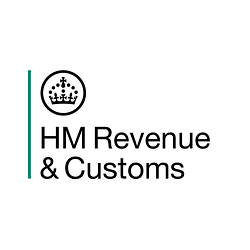
Blog post -
Paying HMRC quarterly – tips for a smooth experience
Businesses who pay HMRC quarterly are approaching their first payment deadline since the reporting of PAYE in real time was introduced. HM Revenue and Customs’ Jane Brothwood runs through some important steps to consider.
More than 1.5 million employer PAYE schemes are now reporting to HM & Revenue and Customs (HMRC) in real time after the new PAYE reporting requirements were introduced in April. This means that 80 per cent of all PAYE schemes, covering around 50 per cent of individual PAYE records, have started to report PAYE in real time.
There is still some way to go but we are pleased with the progress being made, which has exceeded our expectations. We are especially pleased to see that over 86 per cent of SMEs (10 - 49 employees) and 83 per cent of micro employers (1 - 9 employees) have started to report PAYE in real time.
Quarterly PAYE payments
Many small businesses pay HMRC quarterly. For these employers, the first payment deadline of the tax year is now approaching – 19 or 22 July, depending on the method of payment.
With this in mind, I thought I would pass on some tips to help your PAYE payment date pass without a hitch.
The tax month runs from the sixth of the month to the fifth of the next month.
Tell us if you don’t pay anyone in a tax month. This is easy to do using your payroll software or HMRC’s Basic PAYE Tools and, if you know that you won’t be paying an employee for some time, one return can cover up to six months.
We expect at least one return each month, even if you pay us quarterly. You can find more information about how we calculate what is due at hmrc.gov.uk/news/rti-paying-hmrc.htm
If you don’t send us any return in a tax month we estimate the amount due monthly and (if you are a quarterly payer) you will be required to pay the estimated amount in full at the end of the quarter.
Further information can be found at hmrc.gov.uk/payerti/reporting/what-to-report.htm#8
Tell us if you have deducted anything from the amount apparently due, for example, maternity pay or statutory sick pay. Unless you have told us about this, we will ask you to pay the full amount you have deducted from your employees.
Use our online PAYE Liabilities & Payments Viewer to check what our records show you owe and what you have paid.
We normally update the amount owed on the sixth and twentieth of each month, based on all returns we have received to those dates. Any returns made after these dates will not show up until the next update. Some very recent payments may also not be displayed.
For information about how to use the PAYE Liabilities and Payments viewer go to hmrc.gov.uk/payerti/paying/paye-tax-dashboard.htm
Pay and send returns on time and in full
As always, employers should pay the full amount and send their returns by the due date. Reporting in PAYE in real time does not change this nor does it change the payment deadlines.
Further information can be found at hmrc.gov.uk/news/rti-paying-hmrc.htm
Having more up to date information means we can improve our collection processes. Timely payment will help businesses avoid building up big PAYE debts and will mean that employers who pay on time are not disadvantaged. Speeding up collection processes will also help the economy by speeding up the collection of billions of pounds of late paid PAYE.
Not started yet? Act now!
It is important that small businesses act now to get used to the new system before the new automated penalties and interest start in April 2014. Employers who have already started to report in real time have found it easier than expected, and all the information you need is on our website hmrc.gov.uk/actnow
The vast majority of employers are reporting PAYE in real time on or before payment is made to their employees. However, we appreciate that some employers will take a little while to get used to the new system. For this reason, there is a temporary relaxation for small businesses with less than 50 employees. This means that for the time being small employers can report PAYE information to HMRC once a month, rather than each time they pay their employees. Originally the relaxation was due to end in October 2013, but we are seeking to extend this to 5 April 2014, to tie in with the end of the full tax year.
